May 16, 2025 | 10:03 GMT +7
May 16, 2025 | 10:03 GMT +7
Hotline: 0913.378.918
May 16, 2025 | 10:03 GMT +7
Hotline: 0913.378.918
Most of the stages in the rice production have been currently mechanized. However, the stages of soaking and germinating seeds still have to be done manually with rudimentary equipment. In particular, the germination rate largely depends on natural factors like the fluctuations of weather, temperature, and humidity.
According to Nguyen Van Vuong, Head of Food Crops Unit under the Department of Crop Production, Ministry of Agriculture and Rural Development (MARD), the area for cultivating the Japonica short-grain rice variety has been expanded in many regions of Vietnam. This rice variety has high quality and high value in the market and could be planted in many regions.
However, the production of this rice variety has encountered many difficulties due to its low and uneven germination rate. Many suppliers of agricultural materials have had to pay a "high price” after selling seeds to farmers as they might not comply with the soaking technique, resulting in rotten seeds that had to be discarded.
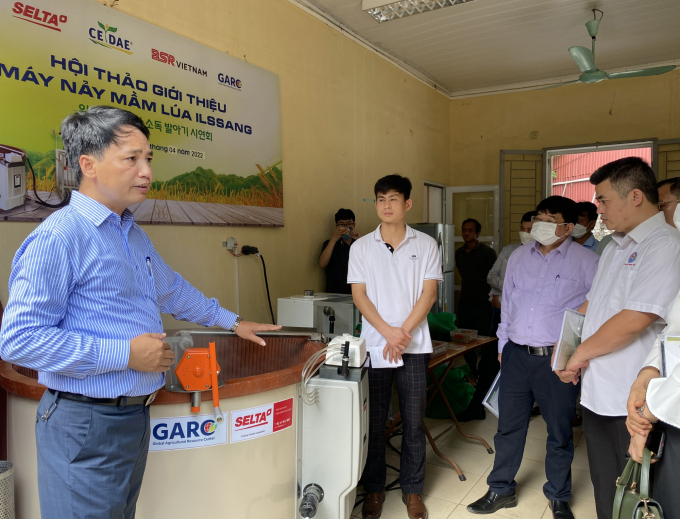
An official from the Center for Technology Development and Agricultural Extension introduced the rice seed sterilizer and germinator imported from South Korean. Photo: Minh Phuc.
To solve the above problem, the Center for Technology Development and Agricultural Extension (Vietnam Academy of Agricultural Sciences) cooperated with the supplier of South Korean ILSSANG rice seed germinator to test its capacity of sterilizing and germinating rice seeds.
This incubator has a round shape with a cover. It is made up of a system of temperature control devices and a 180-degree rotatable circular plank that could be used to place seeds on its flat surface. Seeds stored in bags are disinfected with warm water at a temperature of 62 - 65 degrees Celsius for about 10 minutes without using antiseptics, then washed in cold water below 30 degrees Celsius (antiseptic efficiency is up to 90%).
According to Nguyen Xuan Dung, Deputy Director of the Center, the Center has used 100kg of VAAS16 rice seed (or Japonica rice variety that has long germination time) for testing since the 2021 crop. In which, 50kg of seeds have passed 90 days of dormancy after harvest and the rest have just been harvested in the spring crop of 2021 in the north.
After being sterilized and cooled, the seeds are put into the rice germinator. The machine creates optimal conditions for seeds to germinate by maintaining the right temperature and providing sufficient oxygen.
According to the manufacturer's announcement, the seeds will begin to germinate after 48 hours of soaking. However, the actual test (with many different formulas) for the rice variety VAAS16 at the Center for Technology Development and Agricultural Extension showed that the seed germination time was as early as 5 days, which is 36 hours or 1,5 days earlier than Vietnamese production methods. In particular, the germination rate reached about 90%.
Dung said that the capacity of the ILSSANG rice seed germinator is 300kg of rice/batch. However, some points in the process of sterilizing seeds with warm water (without using chemicals) need to be kept in mind.
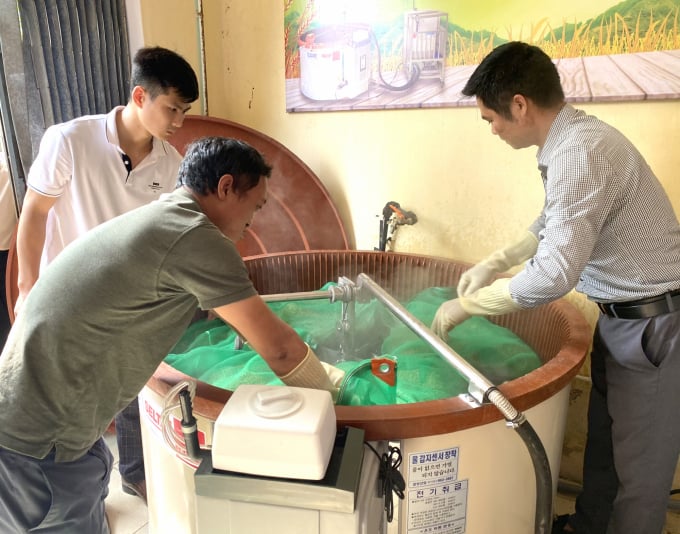
The process of disinfecting rice seeds in hot water of about 62 degrees Celsius is done in about 10 minutes. Photo: Minh Phuc.
First, healthy rice varieties must be chosen. If the temperature is below 58 degrees Celsius, sterilization will not be possible, but a high temperature will reduce the germination rate. The standard sterilization (water immersion) time is 10 minutes, but each variety will have a different standard soaking time. After being soaked in warm water, the seeds need to be taken out and soaked thoroughly in cold water at a temperature below 30 degrees Celsius for 30 minutes. The purpose of sterilizing seeds with warm water is to save the cost of buying disinfectants and prevent rice blast disease, aiming towards an environment-friendly farming system.
Another advantage of the seed germinator is to retain maximum nutrients in the seed embryo, thereby improving the growth and development of rice plants later. Germination rate can reach 95% and uniform growth rate reach 85%. In particular, the change of natural conditions will not affect the germination process.
According to Nguyen Thi Tam, General Director of Vietnam High-Tech Agricultural Materials and Seeds Joint Stock Company, the company is exclusively supplying the Japonica J02 rice variety. Currently, the area for cultivating the rice variety has been expanded from Gia Lai, Kon Tum to the northern mountainous provinces.
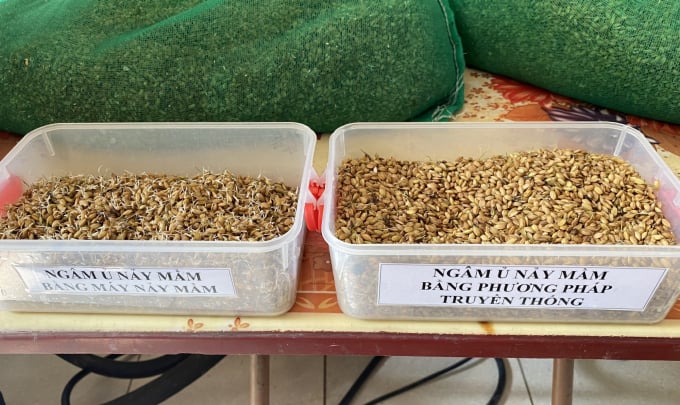
Seeds that are germinated with a machine (left) and soaked seeds that are germinated by traditional methods. Photo: Minh Phuc.
In the early years, the company had to pay a lot of money when transferring the J02 rice variety into production due to its characteristics that make it difficult and slow to germinate. In some years, the company had to germinate the seeds themselves before transporting them to provinces like Ha Giang, Lai Chau, Son La, Dien Bien... for transplanting.
Especially in Gia Lai and Kon Tum, as the J02 variety is difficult to germinate, there are places where farmers sow up to 200kg of seeds/ha, which is very wasteful.
Therefore, the company thought that the rice seed germinator would offer a solution after positive results from the test of the Center for Technology Development and Agricultural Extension.
“We look forward to accessing this seed germinator soon through pilot models or purchasing contracts with a supplier to import the machine from South Korea to Vietnam,” Tam said.
Duong Quang Sau, Deputy General Director of Vietnam Seed Group Joint Stock Company, agreed that the development of the Japonica rice variety at the beginning was very difficult.
As the characteristic of the variety is uneven and slow germination, the rice transplanted in the fields develop unevenly and could not bloom in concentration. At the time of harvest, there are both ripe and green seeds, affecting the quality of rice.
After visiting the Japonica seed incubation model at the Center for Technology Development and Agricultural Extension, Sau assessed that the biggest advantage of the machine is that the rice seeds germinate evenly. Therefore, the above problems can be overcome.
In order for the South Korean rice seed germinator to be widely used, Sau suggested the center promote the introduction of the technology in the southern provinces that are producing Japonica rice on a large scale. Agricultural cooperatives, especially those that provide tray plating services and transplanters will have a high demand for this product, he added.
Translated by Phuong Ha

(VAN) Vietnam’s TH Group officially put its high-tech fresh milk processing plant into operation in the Russian Federation, marking a historic moment as the first TH true MILK cartons were produced in Russia.

(VAN) Use of high-quality broodstock and biotechnology is regarded as the most effective approach to ensuring sustainable and economically viable shrimp aquaculture ahead of climate change and the emergence of increasingly intricate disease patterns.

(VAN) Carbon farming is a form of agricultural practices that helps absorb more greenhouse gases than it emits, through smart management of soil, crops, and livestock.

(VAN) This is a key content of the Memorandum of Understanding recently signed between the Vietnam Fisheries Society and Kunihiro Inc of Japan.

(VAN) To achieve the goal, local authorities and businesses in Kon Tum province have fully prepared the necessary conditions for the new Ngoc Linh ginseng planting season.
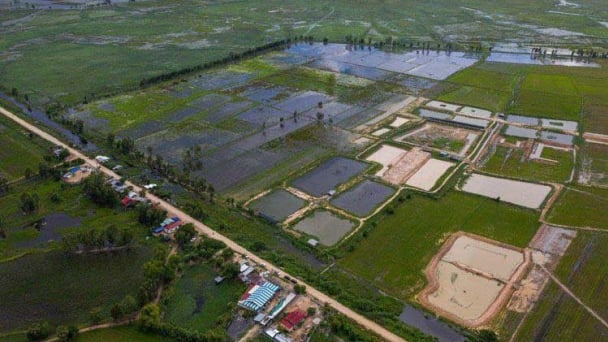
(VAN) Jiangsu province is gearing up to host training programs in Phnom Penh, the capital of Cambodia, this year to establish the Fish and Rice Corridor.
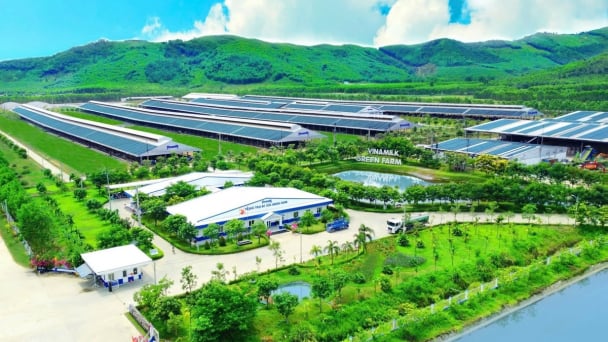
(VAN) Le Hoang Minh, representing Vinamilk, shared the company's experience in energy saving and green energy transition for production at a workshop held during the P4G Summit.